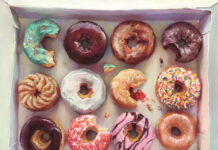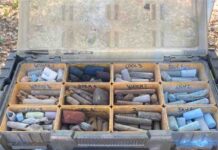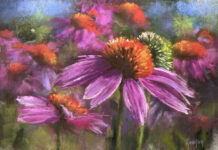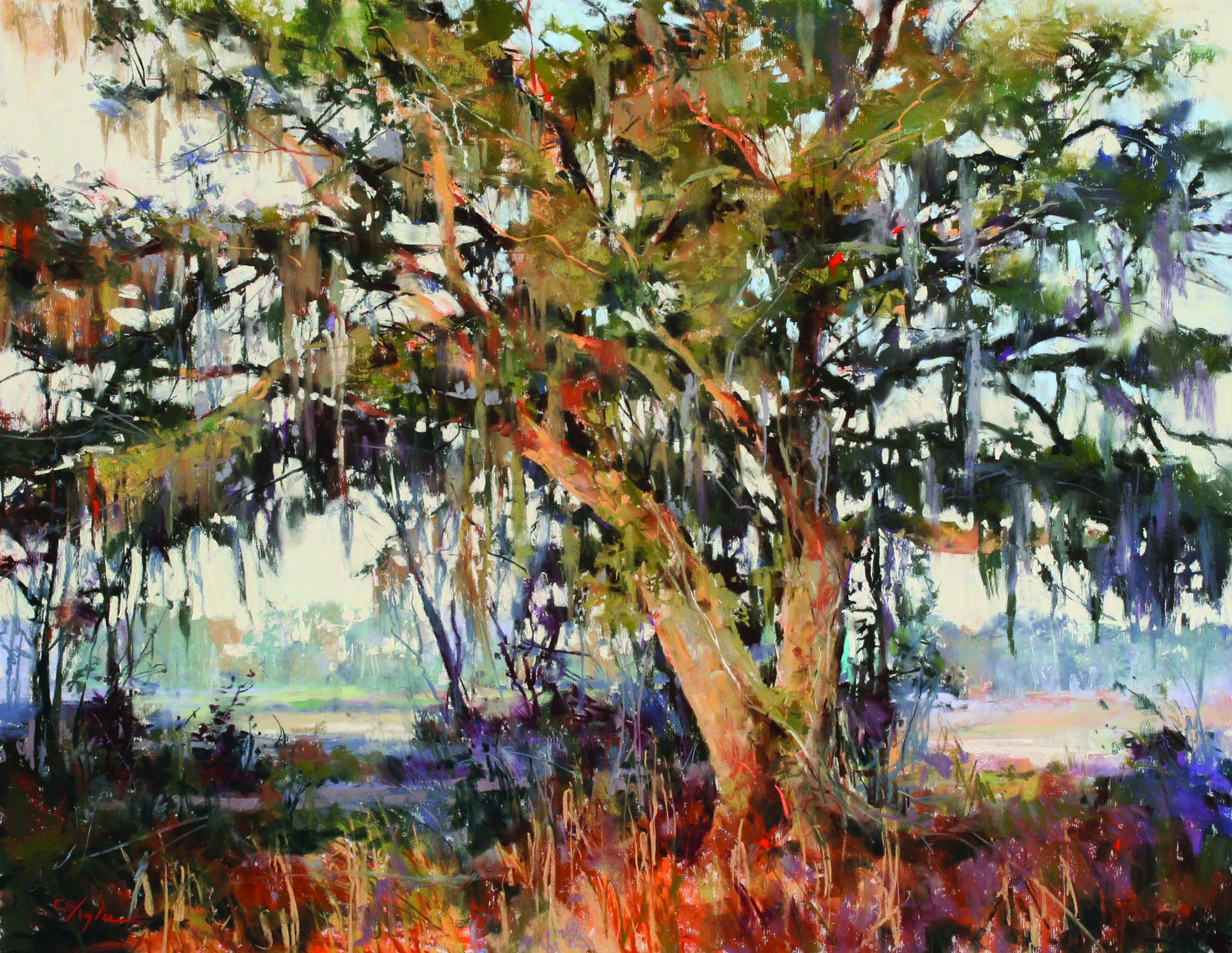
“I paint my experience with nature, not a reproduction of a scene,” says Clive Tyler. “I provide my interpretation of a landscape with a representational, impressionist point of view that I hope leaves the viewer wanting to step into the painting, peek around the corner, look up at the aspens, feel the temperature of the day, sense the time, and hear the sounds of leaves rustling or thunder from a distant storm.
“I use both broken color and layers of color to represent my subject matter. I want the painting to have a realistic feel from a distance and then as you get closer to have a more emotional and impressionistic quality. When viewed up close, it should reveal its abstract qualities. When I teach, I tell my students, “create don’t duplicate.” This helps them from chasing reality too much.
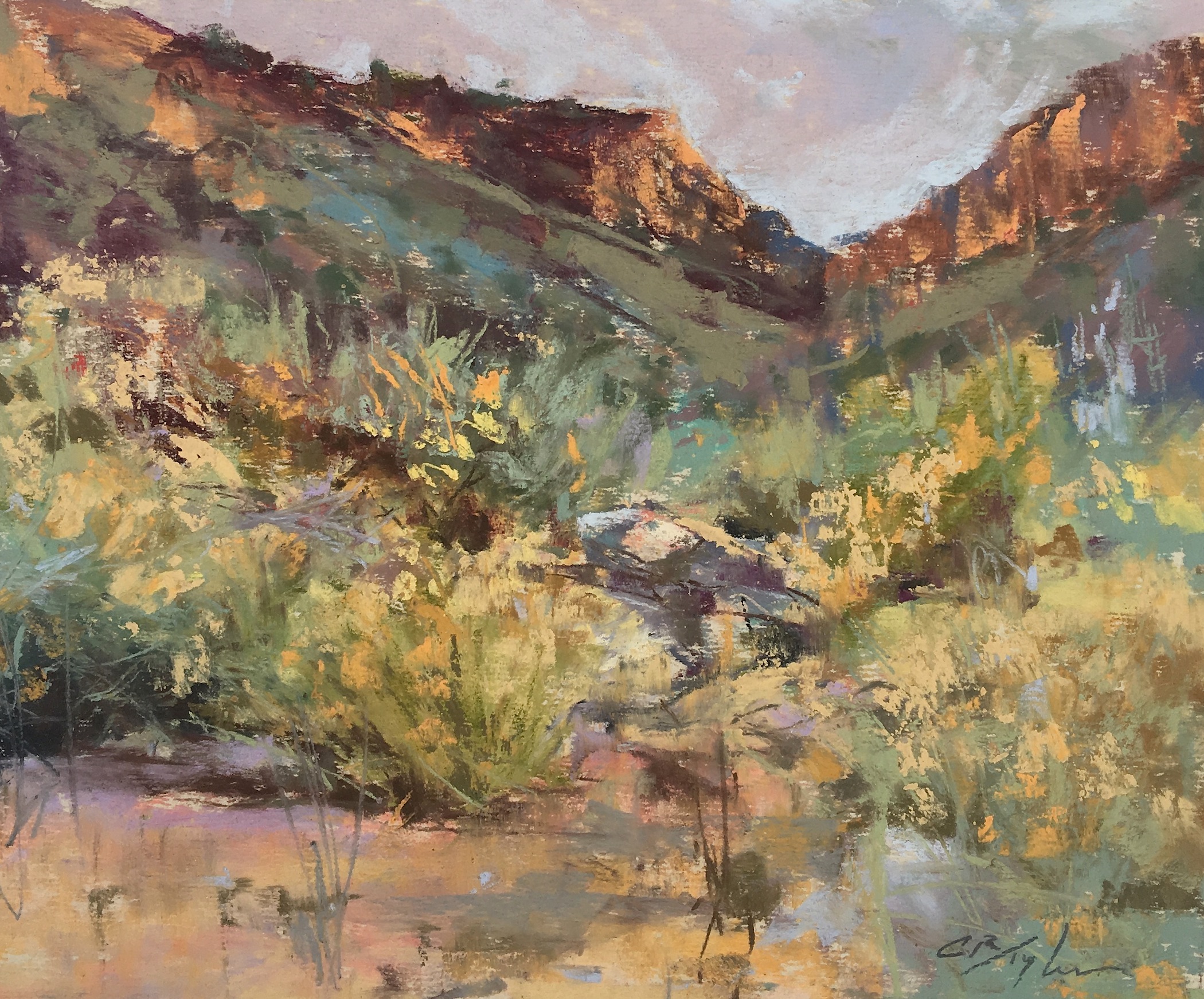
“In my work, I want to achieve a sense of place, time, and light. For me, subject matter comes second. I enjoy finding classic compositions that occur naturally outdoors and the problem-solving aspect of painting, where one color can change everything — the mood, the composition, and the harmony — for better or worse.
“Pastel is great for moving quickly and tapping into inspiration and emotion. It’s always an experiment with color. I’m not obligated to find a stick the exact color that I want; it takes two or more to create what I want to achieve. With pastel, I’m using my hands, feeling the strokes through my fingers.
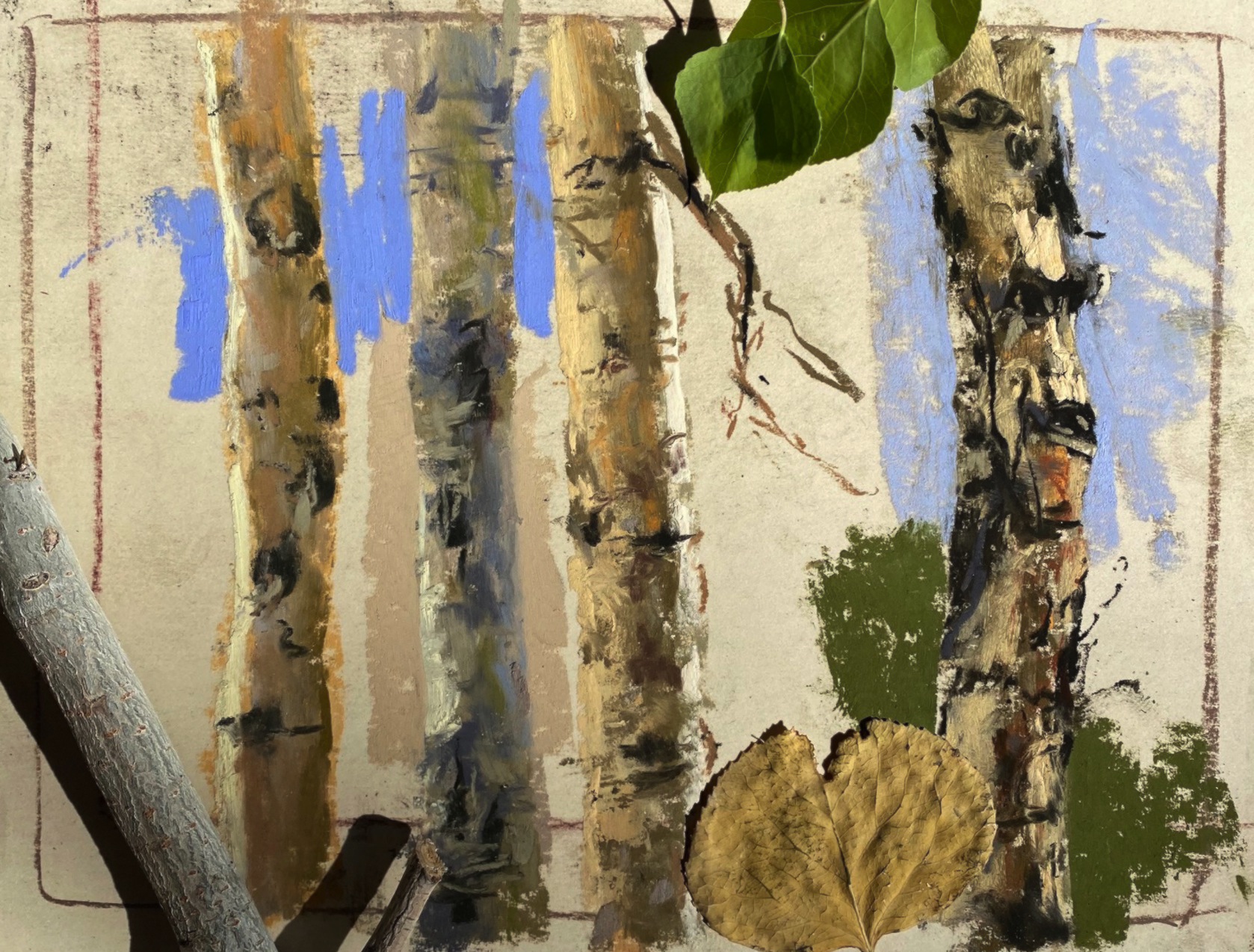
“Outdoors, I can use the medium to get more work done. I think of plein air painting as my workshop or lesson for the day. Typically I will do four to six studies a day. I usually keep them as reference for studio work.”
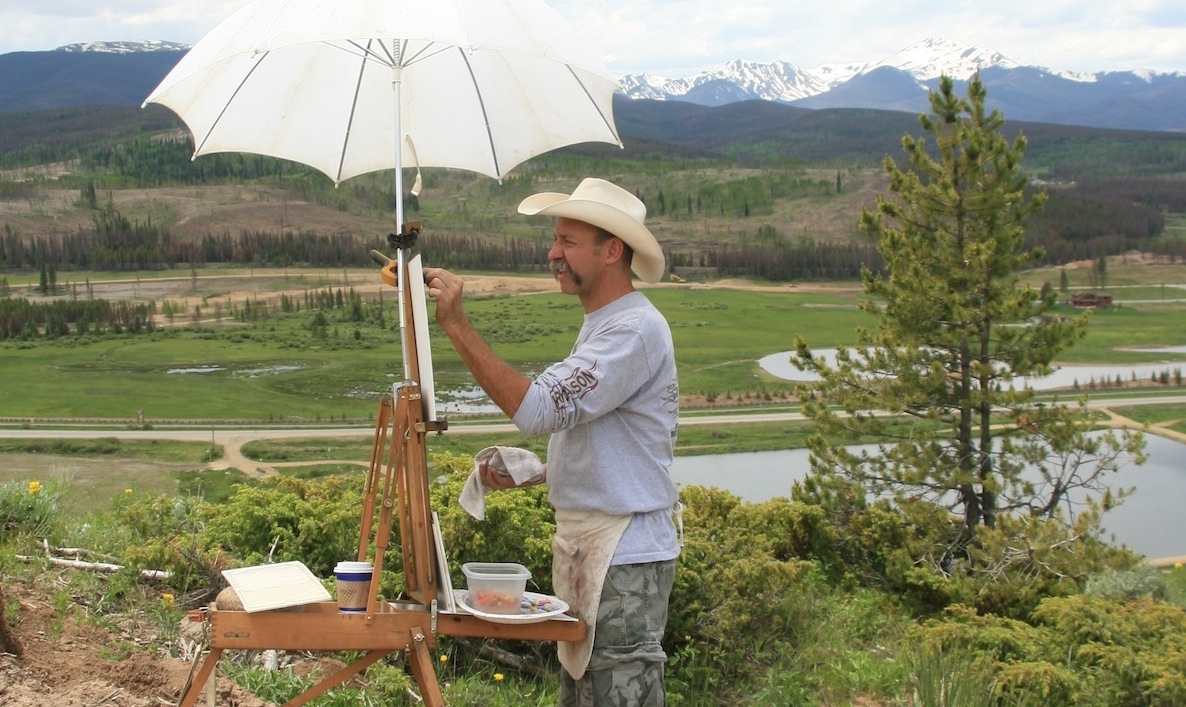
Don’t miss Pastel Live, where over 20 of today’s best artists will show you exactly what they do to succeed, making it the most important 3 days you’ll ever invest in yourself and in your art!

